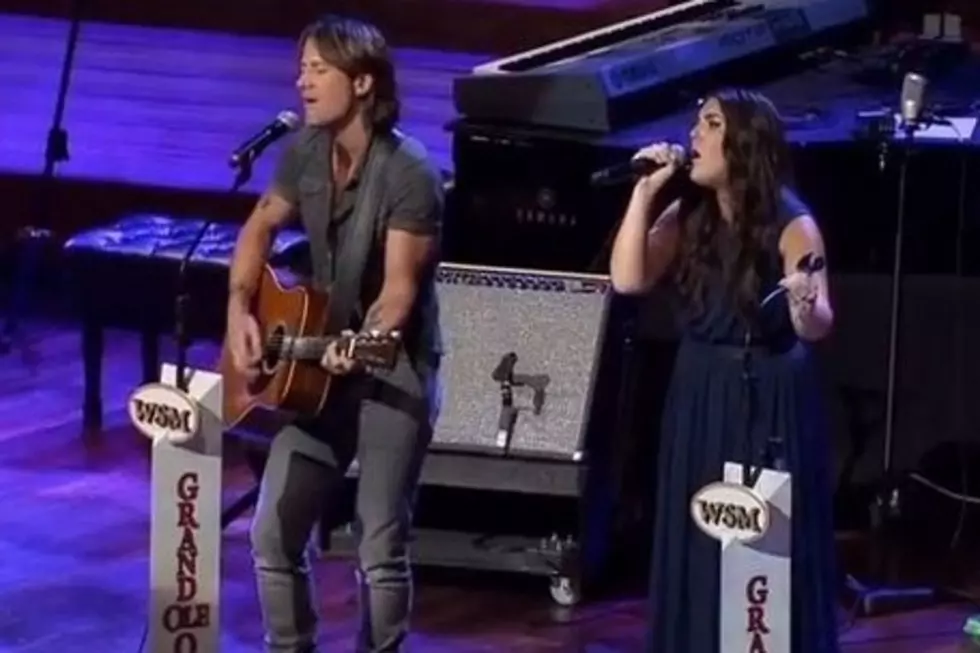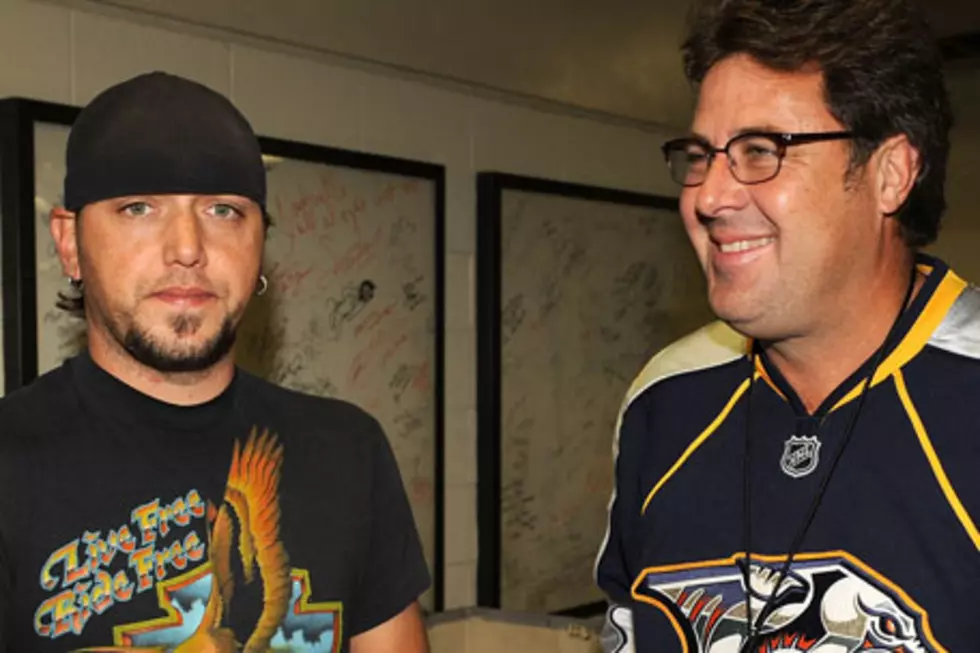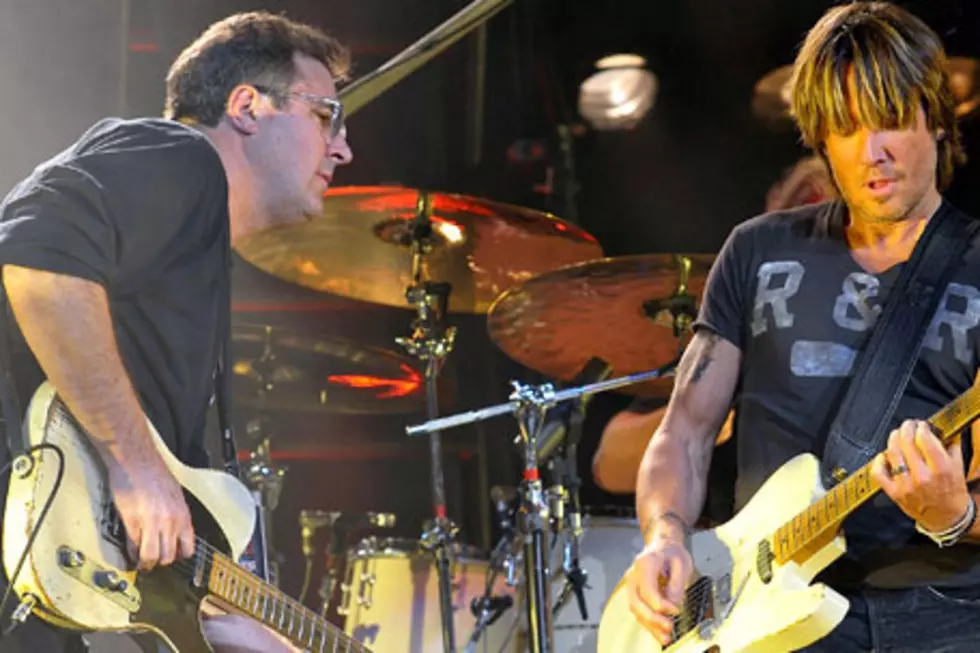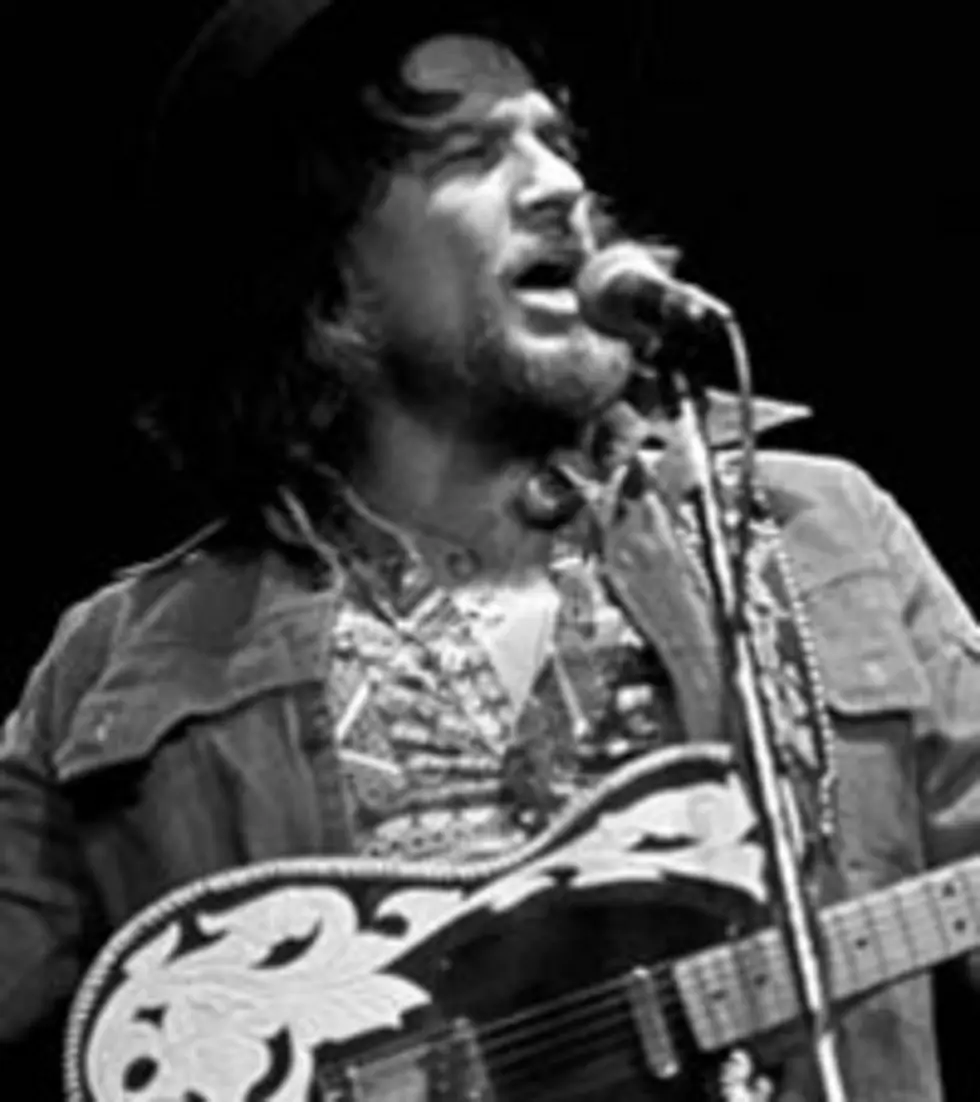
Kris Kristofferson, ‘Feeling Mortal’ and Embracing Gratitude (Exclusive Interview)
This was a pretty good week to be Kris Kristofferson. Let's face it, though, any time is a pretty good time to be the consummate songwriter whose most recognizable -- and justifiably celebrated -- tunes include "Help Me Make It Through the Night," "Sunday Mornin' Comin' Down," "For the Good Times" and "Me and Bobby McGee."
But just this past week in Nashville, the 76-year-old not only presented a prestigious songwriting award with his own name on it to his longtime friend Willie Nelson, he was also on hand at a special Music City event to pay tribute to pioneering producer and tunesmith Cowboy Jack Clement. The singer-songwriter and actor also sat down to discuss his own storied career with an audience of invited guests at the Nashville studios of Sirius XM. Yet of all the events surrounding him this week, perhaps the most exciting for fans of the inimitable storyteller is the release of his latest album, Feeling Mortal, his first since 2009's Closer to the Bone. And although the many backward-looking tunes on the album may have Kristofferson assessing his life, perhaps a better title for the spectacular collection of introspective material would be "Feeling Grateful," since that's a sentiment the iconic artist expressed more than once during our most recent conversation with him.
"I feel so lucky to have lived the life that I did and to be surrounded by the people I love," Kristofferson tells The Boot by phone from his home in Hawaii. "I've got eight kids and they're always laughing all the time. It's like music to my ears. I think that my frame of mind these days is probably happier than I've ever been, which is kind of odd, coming close to the finish line. [laughs] I really have no regrets and I'm just grateful for the life that I've lived. To do the things that I did, I'm amazed that I had the audacity -- like resigning from the Army and becoming a janitor and a songwriter."
A native of Brownsville, Texas, Kristofferson and his family relocated often, thanks to his dad's military career. A gifted athlete and writer, he earned a Rhodes scholarship and during his time at Oxford University was beginning his singing career while also aspiring to be a novelist. An Army helicopter pilot, and teacher of English Literature at West Point, Kristofferson's "audacious" resignation from the Army indeed caused a rift in his family and didn't exactly fast track his music career. Moving to Nashville, his initial odd jobs included janitorial duties at the studios of Columbia Records, while at the same time he worked as a helicopter pilot for a petroleum company in Louisiana, all the while continuing to write songs, eventually scoring his first few cuts by 1966. Not surprisingly, his approach to writing was atypical of other Nashville song scribes.
"I never was one to go into an office and write," he says. "For one thing, I had a job. I was cleaning the ashtrays and setting up the studios at Columbia for a couple of years and working every other week down in the Gulf of Mexico flying helicopters. I didn't really get to just write songs for about five years. But I never regretted it; I was always thinking of writing songs or writing them and sharing them with people I respected, like [Mickey] Newberry and people like that."
One person with whom Kristofferson shared his songs was Shel Silverstein, the legendary Playboy cartoonist and children's book author whose songs, among others, included the Johnny Cash classic, "A Boy Named Sue." When Silverstein would record at Nashville's RCA Studio B, he attracted a lot of attention from fellow songwriters and performers, but was himself drawn to the young upstart with whom he quickly bonded.
"The thing about Shel is that he just loved songwriting like I do," Kristofferson explains. "He was doing something over at RCA where [producer] Chet Atkins was and all these people just knew him as this Playboy cartoonist. Everybody wanted to hang out with him, but he would only hang out with me and all these other songwriters -- and all these other people were really pissed off. [laughs] I guess Chet and all these other guys thought they could learn something about Playboy or something. But Shel would give me a song title or something and I would go down to the Gulf and work on it and then come back and see if he liked it. I remember a couple of them, he laughed and said, 'I even convinced myself that I wrote that song, too!'"
One of those songs, "My Heart Was the Last One to Know," had been cut by Connie Smith in 1967, and has now found its way onto Feeling Mortal.
"I was dealing with a personal heartbreak at the time and I was trying to write like Hank Williams," Kristofferson says of the mournful tune.
The Feeling Mortal sessions were helmed -- as were his last three all-new albums since 1995 -- by Don Was, and spanned just three days. The result was 20 tracks, 10 of which made it onto the current disc. Still, Kristofferson admits that his current writing output isn't anywhere near what it used to be.
"I always had to wait until something hit me and I could write it," he says. "But when I would cut an album, to me it represented the time that I spent since the last one. Just the way I was looking at the world."
A Golden Globe winner as Best Actor for his role in the 1976 film, "A Star Is Born," Kristofferson's long list of film credits, extending from 1971 to the present, includes the "Blade" series and, more recently, "Joyful Noise" and the family film, "Dolphin Tale." While there are potential film roles in the works, he acknowledges that acting was never a passion for him, it was merely something he ventured into simultaneous with his initial success as a performer.
"I feel like it's a creative thing that I got to do as well as I expected to do, because I never really had any training," he concedes. "Looking back, I'm surprised I had the nerve to do it, but I'm glad I did. Performing the songs and performing in film was just a part of my personality, just like football and boxing at one point in my life. I was able to lose myself in both of them and that was a good feeling. But it wouldn't bother me if I'd never did another film. I could live without writing another song, too. I mean, I'm not going to have any more kids. I've got plenty."
On the subject of family, Kristofferson, who has been married three times, is obviously proud of the various accomplishments of his eight offspring, one of whom, daughter Kelly, accompanied him and his wife, Lisa, on a European tour last year and performed her own short set during the shows.
"She's really good," he says. "And my son Blake is a better writer than I ever was. He writes fiction, short stories. I'm just blown away by them."
Leaving Nashville after a whirlwind week spent accepting accolades, recapping the highlights of a phenomenal career and talking about his new album, Kristofferson returns to his idyllic, secluded existence in Hawaii, where the day-to-day routine is simple, yet, somehow, the road continues to beckon.
"I have no neighbors," he notes. "I live in small town where everybody is very protective of me. If anybody comes looking for me, [my neighbors] have never heard of me. Life today for me is, I get up, I have a huge area to mow with my tractor and that'll take me a couple of days, or a week. I'm surprised that I want to keep working. But most of the kids are out of the house, at school or jobs, so there's less to do on a daily basis and nothing to hold us back."
More From TheBoot









